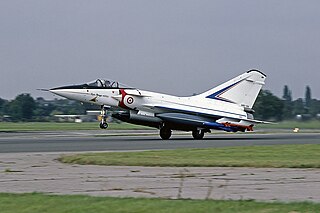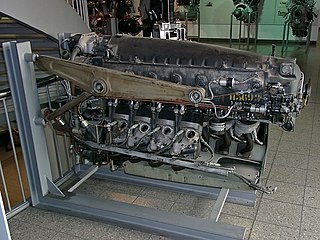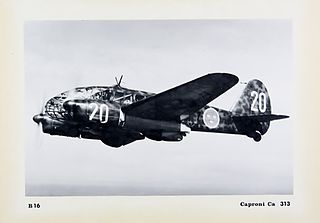Design and development
Design work on a twin-engined light transport started in 1946 with the MD 303, a development of an earlier project for an eight-seat communications aircraft, the Marcel Bloch MB-30. The prototype MD 303 first flew on 26 February 1947 powered by two Béarn 6D engines, designed to meet a French Air Force requirement for a colonial communications aircraft. A re-engined version was ordered into production at the new Dassault factory at Bordeaux-Mérignac. The production aircraft was a low-wing monoplane with twin tail surfaces and a tricycle undercarriage, powered by two Renault 12S piston engines.
Three main versions of the aircraft now named Flamant (Flamingo in French) were produced. The MD 315 ten-seat colonial communication aircraft (first flown on 6 July 1947), the MD 312 six-seat transport aircraft (first flown on 27 April 1950), and the MD 311 navigation trainer (first flown on 23 March 1948). The MD 311 had a distinctive glazed nose for its role as both a bombing and navigation trainer.
Operational history
The first Flamant was delivered to the French Air Force in 1949 and deliveries of all versions were completed by 1953
The aircraft was used for pilot training, navigation training, light transport, maritime surveillance and light ground attack. During the Algerian War of Independence the plane was used for light attack with the Nord SS.11 and AS.11 antitank missiles or with machine guns, bombs, and rockets. The Flamant MD 311s (which were based in Algeria to train pilots and navigators at first) were the first aircraft in history to fire one of the world's first wire-guided antitank missiles in anger, using French Army SS.11 antitank missiles, in a combat experiment to get at fortified caves located in deep mountain gorges, in 1956 from an aircraft based with the special unit of the French Air Force in Algeria, GOM.86. The SS.11 attacks proved extremely successful and the French Army which had provided the missiles, began an experiment which resulted in the world's first attack helicopters firing antitank missiles. [2] The Flamant stayed in service until 1981. In addition to the French air force, the Flamant served in Cambodia, Madagascar, Tunisia, and Vietnam.

Dassault Aviation SA is a French manufacturer of military aircraft and business jets. It was founded in 1929 by Marcel Bloch as Société des Avions Marcel Bloch or "MB". After World War II, Marcel Bloch changed his name to Marcel Dassault, and the name of the company was changed to Avions Marcel Dassault on 20 January 1947.

The Dassault Mirage III is a family of single/dual-seat, single-engine, fighter aircraft developed and manufactured by French aircraft company Dassault Aviation. It was the first Western European combat aircraft to exceed Mach 2 in horizontal flight, which it achieved on 24 October 1958.

The Dassault Étendard IV is a transonic carrier-borne strike fighter aircraft developed and manufactured by French aerospace company Dassault Aviation.

The Dassault Mirage IV is a French supersonic strategic bomber and deep-reconnaissance aircraft. Developed by Dassault Aviation, the aircraft entered service with the French Air Force in October 1964. For many years it was a vital part of the nuclear triad of the Force de Frappe, France's nuclear deterrent striking force. The Mirage IV was retired from the nuclear strike role in 1996, and the type was entirely retired from operational service in 2005.

The Bloch MB.130 and its derivatives were a series of French monoplane reconnaissance-bombers developed during the 1930s. They saw some limited action at the beginning of World War II but were obsolete by that time and suffered badly against the Luftwaffe. After the fall of France, a few were pressed into Luftwaffe service.

The Bloch MB.210 and MB.211 were the successors of the French Bloch MB.200 bomber developed by Société des Avions Marcel Bloch in the 1930s and differed primarily in being low wing monoplanes rather than high wing monoplanes.

The Bloch MB.170 and its derivatives were French reconnaissance bombers designed and built shortly before the Second World War. They were the best aircraft of this type available to the Armée de l'Air at the outbreak of the war, with speed, altitude and manoeuvrability that allowed them to evade interception by the German fighters. Although the aircraft could have been in service by 1937, debate over what role to give the aircraft delayed deliveries until 1940.

The Dassault Mirage 4000 is a French prototype twinjet fighter aircraft developed by Dassault-Breguet from their Mirage 2000.

The Lockheed Model 12 Electra Junior, more commonly known as the Lockheed 12 or L-12, is an eight-seat, six-passenger all-metal twin-engine transport aircraft of the late 1930s designed for use by small airlines, companies, and wealthy private individuals. A smaller version of the Lockheed Model 10 Electra, the Lockheed 12 was not popular as an airliner but was widely used as a corporate and government transport. Several were also used for testing new aviation technologies.

The Dassault Super Mystère is a French supersonic fighter-bomber and was the first Western European supersonic aircraft to enter mass production.

The Lockheed Air Express was the second aircraft design created by the Lockheed Aircraft Company after its founding in 1927; the type first flew in April 1928.

The Argus 411 was an air-cooled, inverted-V12 aircraft engine developed by Argus Motoren in Germany during World War II.
The Dassault M.D.320 Hirondelle was a French 14-seat utility transport aircraft of the 1960s, designed and built by Dassault Aviation, in prototype form only.

The Breda Ba.201 was an Italian dive bomber designed during World War II, that never entered production.

The Caproni Ca.313 was an Italian twin-engine reconnaissance bomber of the late-1930s. It was a development of the Ca.310. Its variants were exported to several other countries.

The Dassault MD.415 Communauté was a 1950s French twin-engined light turboprop transport monoplane built by Dassault Aviation. Only one prototype was built and flown.

The Morane-Saulnier Vanneau is a two-seat basic trainer built in France by Morane-Saulnier and ordered by the French Air Force.

The Northrop Delta was an American single-engined passenger transport aircraft of the 1930s. Closely related to Northrop's Gamma mail plane, 13 were produced by the Northrop Corporation, followed by 19 aircraft built under license by Canadian Vickers Limited.
The Nord 2100 Norazur was a 1940s French military transport monoplane designed and built at Courbevoie near Paris by SNCAN.
Bordeaux Aéronautique (BA) was a French aeronautic company founded on 17 March 1939, by Marcel Bloch, André Curvale, Henri Deplante and Claude de Cambronne.
This page is based on this
Wikipedia article Text is available under the
CC BY-SA 4.0 license; additional terms may apply.
Images, videos and audio are available under their respective licenses.



















